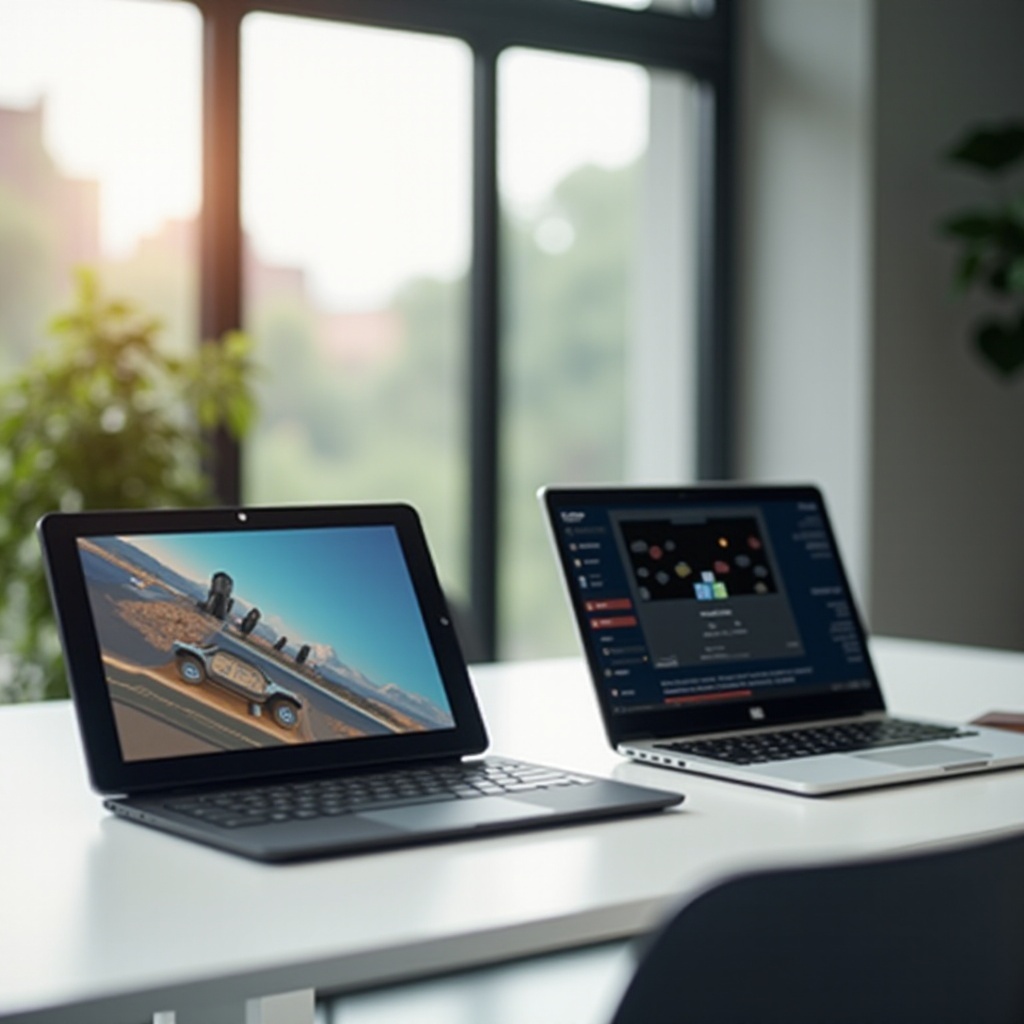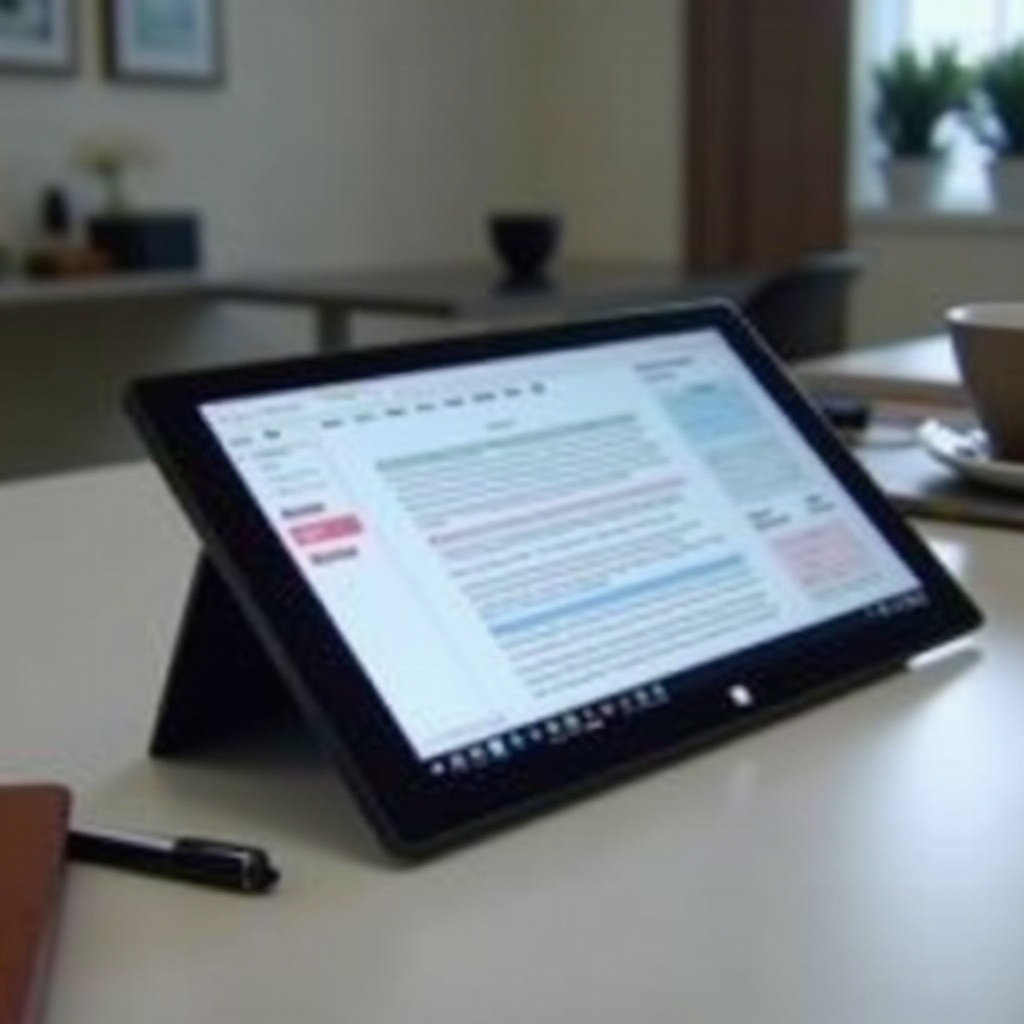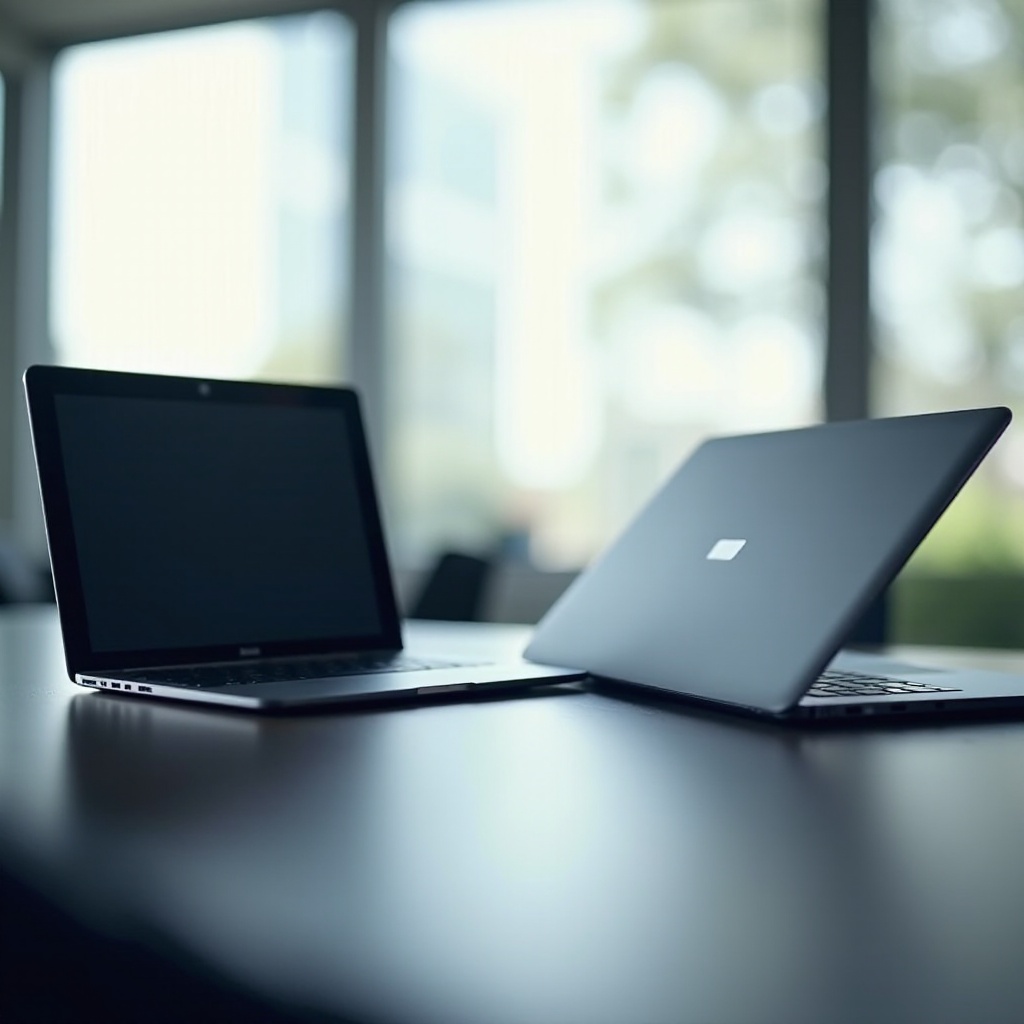Introduction
Selecting the ideal Windows device can be a daunting task, especially in 2024 with the myriad of choices available. Among these, Windows tablets and netbooks have emerged as popular contenders. Both devices have their unique strengths and weaknesses catering to different user needs. This blog aims to compare these two types of devices, focusing on their key features, performance, and suitability for various use cases.

Understanding Windows Tablets and Netbooks
When it comes to portability and convenience, Windows tablets and netbooks often come up in conversations. Windows tablets provide touch-screen functionality, enabling a range of applications that traditional PCs or laptops can’t match. In contrast, netbooks typically offer a more laptop-like experience, albeit with reduced processing power and size.
Tablets usually come with a detachable keyboard or can be paired with one, granting flexibility. Netbooks, however, are compact laptops designed for light computing tasks such as browsing, document editing, and media consumption. Both forms factor as ideal companions for users who require mobility but have distinct differences in usability and functionality.
Key Features and Benefits of Windows Tablets
Windows tablets shine with their ultra-portable design and touch interface. One of their most compelling features is their versatility, which allows users to switch between a tablet and a laptop-like experience. Many models come with pens that enable precise tasks like drawing or note-taking.
- Portability: Tablets are lightweight and compact, fitting easily into a bag, making them easy to carry around.
- Touchscreen: The touch interface allows for intuitive interaction with applications.
- Battery Life: Generally, tablets offer excellent battery life, ensuring extended periods of use without needing a recharge.
- Versatility: Coupled with a kickstand or detachable keyboard, tablets can quickly transform from a media consumption device to a productivity tool.
Key Features and Benefits of Windows Netbooks
Netbooks are designed for those who need a more traditional computing experience but still value portability. These devices generally offer more connectivity options, such as USB ports and HDMI, and run the full Windows OS, enabling the installation of desktop applications.
- Keyboard: A physical keyboard with a touchpad improves typing speed and precision, making netbooks suitable for writing tasks.
- Connectivity: More ports mean greater expandability and flexibility for peripherals.
- Affordability: Netbooks are generally less expensive compared to tablets, offering good value for basic computing needs.
- Software Compatibility: Being able to run full Windows applications is a significant advantage, especially for professional use.
Windows Tablets vs. Netbooks: Performance Comparison
Performance-wise, both Windows tablets and netbooks cater to specific needs and user profiles. Tablets offer superior mobility and a unique interaction experience through their touchscreens. They are typically equipped with ARM processors or low-power Intel CPUs, which provide adequate power for everyday tasks but may struggle with more demanding applications.
Netbooks, equipped with slightly more powerful processors, handle multitasking and storage better. They usually come with integrated graphics capable of handling light multimedia tasks and simple gaming. However, they are still limited when it comes to intensive applications like high-end gaming or heavy graphics design work.
In a side-by-side comparison:
– Processing Power: Netbooks tend to have slightly higher processing power.
– Multitasking: Both devices can handle multitasking, but netbooks fare better when running multiple desktop applications simultaneously.
– Graphics Performance: Tablets may offer better touch-based graphics performance, but netbooks provide adequate performance for basic multimedia tasks.
– Storage and Memory: Netbooks often come with more storage and memory options, making them better for storing large files.
Use Case Scenarios: Which Device Fits Your Needs?
When deciding between a Windows tablet and a netbook, consider your primary use case. For users needing a device primarily for media consumption, note-taking, or browsing, a Windows tablet is ideal. The portability and touchscreen features make it perfect for these tasks.
In contrast, if you require a device for actual work like writing reports, running software requiring more processing power, or connecting multiple peripherals, a netbook might be your best bet. Its physical keyboard and expanded connectivity options provide an edge in productivity tasks.
Pros and Cons of Windows Tablets
Pros:
– Highly portable and lightweight
– Excellent battery life
– Touchscreen and stylus support for creative tasks
– Versatile in function, from a tablet to a laptop
Cons:
– Limited processing power for high-end applications
– Usually smaller storage space
– Physical keyboard may be an additional cost
– Lesser traditional computing feel

Pros and Cons of Windows Netbooks
Pros:
– More affordable
– Physical keyboard and good for typing tasks
– Greater connectivity options
– Runs full Windows applications
Cons:
– Limited processing power compared to full laptops
– Less portable than tablets
– Usually shorter battery life compared to tablets
– Lesser multimedia and creative capabilities
Making the Right Choice: Tablet or Netbook?
Choosing between a Windows tablet and a netbook should depend on your usage context. Tablets offer excellent portability, versatility, and user-friendly features ideal for casual use, content consumption, or creative work. Netbooks, on the other hand, provide a more traditional computing experience, suitable for productivity tasks and users on a budget.

Conclusion
Selecting between a Windows tablet and a netbook in 2024 boils down to your specific needs and preferences. Both devices have their strengths, making them suitable for different types of users. Evaluate your primary tasks, budget, and mobility requirements to make an informed decision and invest in a device that best suits your lifestyle.
Frequently Asked Questions
What is better for students: a Windows tablet or a netbook?
For students, a Windows tablet might be better due to its versatility and portability. It’s suitable for note-taking, reading, and media consumption. However, a netbook is preferable for tasks requiring extensive typing.
Are Windows netbooks more powerful than tablets?
Generally, netbooks offer slightly more processing power and better multitasking capabilities than tablets. However, they still cannot compete with traditional laptops when it comes to performance.
Can I use a Windows tablet as my primary work device?
Yes, you can use a Windows tablet as your primary work device, especially if your work involves media consumption, note-taking, and light productivity tasks. Pairing it with accessories like a detachable keyboard and a stylus can enhance its functionality.